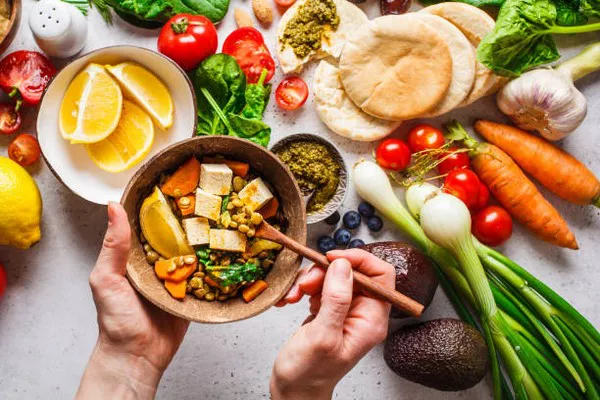When it comes to fitness and weight loss, understanding the role of protein and calories is crucial. Both elements play significant roles in achieving your health goals. This article will dive deep into the importance of protein versus calories, and provide actionable fitness and weight loss strategies.
Understanding Calories
Calories are a measure of energy. Every food and drink item you consume provides a certain number of calories. Your body uses these calories to perform daily functions and physical activities. If you consume more calories than you burn, the excess is stored as fat, leading to weight gain. Conversely, consuming fewer calories than you burn results in weight loss.
Caloric Needs
Your caloric needs depend on various factors:
Basal Metabolic Rate (BMR): The number of calories your body needs at rest to maintain basic physiological functions.
Physical Activity Level: The more active you are, the more calories you need.
Age, Gender, and Weight: All these factors influence your caloric requirements.
To lose weight, you generally need to create a calorie deficit by either reducing calorie intake or increasing physical activity.
The Role of Protein
Protein is one of the three macronutrients (along with fats and carbohydrates) essential for your body. It is vital for:
Building and Repairing Muscle: Protein helps in muscle recovery and growth.
Maintaining Healthy Skin and Hair: Protein contributes to the health of your skin and hair.
Satiety: Protein helps keep you feeling full longer, which can aid in weight management.
Protein Needs
Protein needs vary based on:
Activity Level: Active individuals require more protein.
Goals: Whether you are aiming to build muscle or lose weight can affect your protein requirements.
Body Weight: Protein needs are often calculated per kilogram of body weight.
The Recommended Dietary Allowance (RDA) for protein is 0.8 grams per kilogram of body weight. However, athletes and those engaged in heavy training may need more.
Comparing Protein and Calories
Both protein and calories are important, but they serve different purposes. Here’s how they stack up against each other:
Protein vs. Calories for Weight Loss
Protein: Helps preserve muscle mass while losing weight. It also increases thermogenesis, which can boost calorie burning. High-protein diets can enhance satiety, making it easier to stick to a calorie deficit.
Calories: Maintaining a calorie deficit is crucial for weight loss. However, the quality of calories (from protein, carbs, or fats) can impact overall health and weight management.
Protein and Metabolism
Protein has a higher thermic effect compared to fats and carbohydrates. This means your body burns more calories digesting protein. Additionally, protein can help maintain muscle mass, which is important for a healthy metabolism.
Fitness Suggestions for Balancing Protein and Calories
1. Calculate Your Caloric Needs
Start by determining your daily caloric needs based on your BMR and activity level. Use online calculators or consult with a fitness professional to get an accurate estimate.
2. Set Protein Goals
Aim for a protein intake that supports your goals:
For Weight Loss: Include a moderate amount of protein to help with muscle preservation and satiety.
For Muscle Gain: Increase protein intake to support muscle repair and growth.
3. Monitor Your Intake
Keep track of your calorie and protein intake using apps or food diaries. This helps ensure you meet your nutritional goals without overeating or under-eating.
4. Choose Protein-Rich Foods
Incorporate lean protein sources into your diet:
Animal Sources: Chicken, turkey, fish, lean beef, eggs.
Plant Sources: Beans, lentils, tofu, quinoa, nuts.
5. Balance Your Meals
Create balanced meals that include:
Protein: To support muscle and satiety.
Carbohydrates: For energy and recovery.
Fats: For overall health and energy.
6. Adjust for Activity Levels
Increase protein intake if you are engaging in intense workouts or resistance training. Ensure your caloric intake aligns with your activity level to avoid unintended weight gain or loss.
7. Stay Hydrated
Adequate hydration is important for metabolism and overall health. Drink plenty of water throughout the day, especially if you are increasing your protein intake.
8. Plan for Long-Term Success
Sustainable weight loss and fitness goals require long-term planning. Focus on a balanced diet and consistent exercise routine rather than quick fixes.
See Also: Diet vs. Exercise: What’s More Important?
Sample Meal Plan for Balancing Protein and Calories
Breakfast
- Omelet: 3 egg whites, 1 whole egg, spinach, and mushrooms.
- Whole Grain Toast: 1 slice.
- Fruit: 1 apple.
Lunch
- Grilled Chicken Salad: Mixed greens, cherry tomatoes, cucumber, and a vinaigrette dressing.
- Quinoa: 1/2 cup.
Snack
- Greek Yogurt: 1 cup with a handful of berries.
Dinner
- Baked Salmon: 4 oz.
- Sweet Potato: 1 medium, baked.
- Steamed Broccoli: 1 cup.
Evening Snack
- Protein Shake: Made with protein powder, water, and a small banana.
Conclusion
Both protein and calories are crucial in the realm of fitness and weight loss. While calories determine your weight, protein plays a key role in maintaining muscle mass and satiety. By understanding the balance between the two, you can create a diet and exercise plan that supports your health and fitness goals effectively.
For personalized advice, consider consulting a nutritionist or fitness coach to tailor a plan that fits your unique needs. Remember, consistency and balance are key to achieving long-term success.


